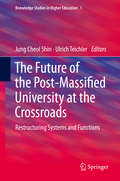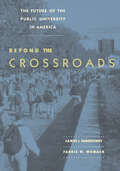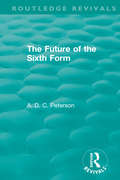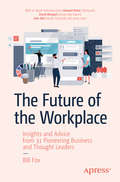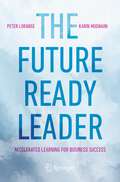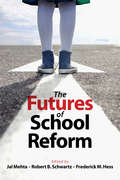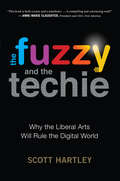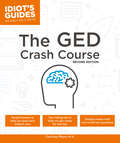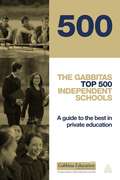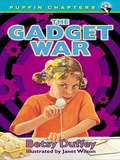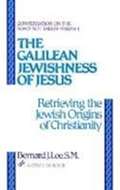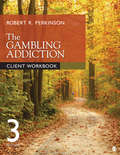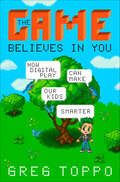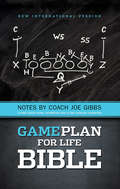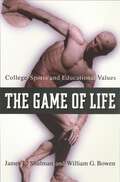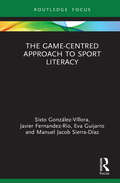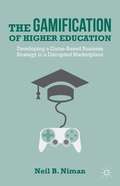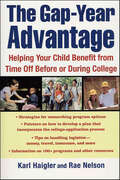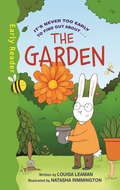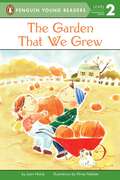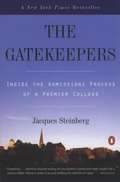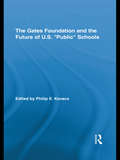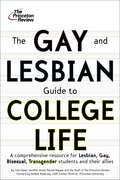- Table View
- List View
The Future of the Post-Massified University at the Crossroads
by Ulrich Teichler Jung Cheol ShinThe modern university started as an innovative model - a research-driven teaching and service model in the 19th century -, but the contemporary university is in a crisis of identity. The major challenge is how to harmonize different missions, e. g. , teaching, research, and service. The triple function has become questionable and research now dominates the other two functions in contemporary higher education. This book takes a step towards further academic and policy discussions on the restructuring the triple functions of university and designing the future of the post-massified university.
The Future of the Public University in America: Beyond the Crossroads
by James J. Duderstadt Farris W. WomackIn the United States, public colleges and universities educate more than 80 percent of the nation's 11 million college students. Public universities conduct the majority of the country's campus-based research and produce most of the nation's doctors, lawyers, engineers, teachers, and other professionals and public leaders. They provide critical services such as agricultural and industrial technology, health care, and economic development, and they help students of all ages develop more rewarding careers and more meaningful lives.Written for everyone who is interested in and concerned about the nation's public universities, The Future of the Public University in America offers a view from the perspective of two experienced professionals. James J. Duderstadt, former president of the University of Michigan, and Farris W. Womack, former executive vice president and chief financial officer of the University of Michigan, explore the unique challenges facing public higher education today. They look at the forces driving change—economic imperatives, technology, and market forces—as well as the characteristics of the public university that make change difficult: the nature of its various campus communities, its governance system, its management and decision-making processes, and its leadership. The authors conclude by suggesting strategies at the state and federal level to preserve and strengthen public higher education as a resource for future generations.
The Future of the Sixth Form (Routledge Revivals)
by A.D.C. PetersonOriginally published in 1973, the nature of the sixth form and the objectives of sixth-form schooling were important issues in the field of education at the time. The author here provides a searching analysis of the changing structure and composition of the sixth form. He surveys the continued expansion in sixth-form numbers and suggests ways in which the curriculum could be improved. He examines critically a number of myths about the actual practice of sixth-form education, and considers the case for sixth-form ‘blocks’ or colleges. In a final chapter the author discusses the mechanism of change in this crucial area of education.
The Future of the Workplace: Insights and Advice from 31 Pioneering Business and Thought Leaders
by Bill FoxAs society evolves in the direction of innovation, digital influence, and rapid information delivery, workplaces must follow suit in order to remain relevant and engaging to modern employees. Bill Fox, a thought leader and author with decades of experience in the business world, has interviewed 31 global business leaders about how they create workplaces that continue to adapt with the times, where each team thrives at each level. These lessons go beyond the limitations of “best practices” and “working smarter”, and instead focus on insights and strategies to bridge the gap between the Industrial Age and the new “Forward-Thinking Age”. The Future of the Workplace offers advice for the leaders, managers, and employees of both today and tomorrow. Fox discusses macro and micro topics with influential figures such as Howard Behar, former president of Starbucks; Steph Holloway, body language and communication expert; David Marquet, author of Turn the Ship Around; John Bell, former CEO of Jacobs Suchard; Perry Marshall, author of Evolution 2.0; and many more. You will gain applicable tools to shift attitudes and bring transformative change to your organization, creating a productive and realistic future for both your team and yourself. The very nature of the dynamic between employer and employee is divergent from what it was merely 10 years ago. Perspectives from different members of multiple types of teams and company structures are offered in this book in order to ensure a well-rounded view of how the future of workplaces can best accommodate everybody. The world is significantly shifting in personal, economic, and political ways, and The Future of the Workplace is your guide to effectively embracing these new challenges for the better.What You Will LearnShares new insights to help resolve some of today's most vexing workplace challengesReveals perspectives from different members on a team on how the workplace has evolved Learn how to trigger change to create a more adequate and healthy workplace environmentWho This Book Is ForAnyone looking for new and better ways to transform the workplace including, consultants, managers, and leaders
The Future-Ready Leader: Accelerated Learning for Business Success
by Peter Lorange Karin MugnainiIf you're a business leader looking to stay ahead of the curve, this book is an essential guide. It offers a comprehensive overview of the major trends shaping the future of business, drawing on reviews of 70 recent management books and interviews with 21 senior leaders.What sets this book apart is that it's grounded in the real-world experiences of active business leaders. From political affairs to family businesses and everything in between, each of the eight parts offers expert insights on the challenges and opportunities that lie ahead. Whether you're seeking to adapt your strategy to the external environment, lead your organization towards fulfilling its mission, or simply stay ahead of the competition, this book has got you covered.
The Futures of School Reform
by Jal Mehta Frederick M. Hess Robert B. SchwartzThe Futures of School Reform represents the culminating work of a three-year discussion among national education leaders convened by the Harvard Graduate School of Education. Based on the recognition that current education reform efforts have reached their limits, the volume maps out a variety of bold visions that push the boundaries of our current thinking. Taken together, these visions identify the leverage points for generating dramatic change and highlight critical trade-offs among different courses of action. The goal of this book is not to present a menu of options. Rather, it is to surface contrasting assumptions, tensions, constraints, and opportunities, so that together we can better understand--and act on--the choices that lie before us.
The Futures of School Reform
by Jal MehtaThe Futures of School Reform represents the culminating work of a three-year discussion among national education leaders convened by the Harvard Graduate School of Education. Based on the recognition that current education reform efforts have reached their limits, the volume maps out a variety of bold visions that push the boundaries of our current thinking. Taken together, these visions identify the leverage points for generating dramatic change and highlight critical trade-offs among different courses of action. The goal of this book is not to present a menu of options. Rather, it is to surface contrasting assumptions, tensions, constraints, and opportunities, so that together we can better understand—and act on—the choices that lie before us.
The Fuzzy and the Techie: Why the Liberal Arts Will Rule the Digital World
by Scott Hartley&“Artfully explains why it is time for us to get over the false division between the human and the technical.&”—Tim Brown, CEO of IDEO and author of Change by Design Scott Hartley first heard the terms fuzzy and techie while studying political science at Stanford University. If you majored in humanities or social sciences, you were a fuzzy. If you majored in computer or hard sciences, you were a techie. While Silicon Valley is generally considered a techie stronghold, the founders of companies like Airbnb, Pinterest, Slack, LinkedIn, PayPal, Stitch Fix, Reddit, and others are all fuzzies—in other words, people with backgrounds in the liberal arts. In this brilliantly counterintuitive book, Hartley shatters assumptions about business and education today: learning to code is not enough. The soft skills—curiosity, communication, and collaboration, along with an understanding of psychology and society&’s gravest problems—are central to why technology has value. Fuzzies are the instrumental stewards of robots, artificial intelligence, and machine learning. They offer a human touch that is of equal—if not greater—importance in our technology-led world than what most techies can provide. For anyone doubting whether a well-rounded liberal arts education is practical in today&’s world, Hartley&’s work will come as an inspiring revelation. Finalist for the 2016 Financial Times/McKinsey Bracken Bower Prize and A Financial Times Business Book of the Month
The GED Crash Course, 2E (Idiot's Guides)
by AlphaThe next best thing to a personal GED tutor!Open new doors. That's exactly what earning your high school equivalency credential enables you to do. But the GED isn't a cake walk, and you can't expect to pass it without solid preparation.Fortunately, that's exactly what this easy-to-use crash course offers--solid preparation in an unintimidating, efficient format. Make the most of your time by learning exactly what you need in each subject area before moving on to the next one. You won't learn how to "beat" the test, but you will quickly gain the knowledge necessary to beat it, including:Simple lessons to help you pass each of the four subject areas: math, science, social studies, and language artsEasy guidance on how best to approach the computerized format of the testSmart advice on helping you sharpen your test-taking skills and making the most of your time on test daySample exams with real-world test questions
The Gabbitas Top 500 Independent Schools
by GabbitasEvery parent wants their child to flourish throughout their education, and few decisions are more difficult than choosing the right school. Selected by Gabbitas' panel of experts, this new guide highlights the best in independent education, including a listing of the most exceptional schools, and chosen for their all-round academic excellence; opportunities; history, culture and ethos; prospects for school leavers; facilities and staff-to-student ratios. With its unique emphasis on the overall development of the student, taking into account a range of important criteria, The Gabbitas Top 500 Independent Schools offers a more genuine reflection of the best schools than relying solely on league tables. Fully supported by Gabbitas consultants' accompanying website, this guide will allow parents to make the most informed decision about their child's education.
The Gadget War
by Betsy DuffeyKelly Sparks is the undisputed gadget champ at Danville School. Then Albert Einstein Jones, an alumnus of Young Inventor's Camp, joins her class. Kelly could give up the gadget crown gracefully -but she'd much rather let the spitballs and smelly goo fly! .
The Galilean Jewishness of Jesus: Retrieving the Jewish Origins of Christianity
by Bernard J. LeeIn The Galilean Jewishness of Jesus, the first of a three-volume series, author Bernard J. Lee, S.M., reconstructs the historical, cultural and religious fabric of Galilee in the time of Jesus and examines four kinds of Jews who would have been familiar to the religious landscape of Jesus' Galilee: teacher, Pharisee, wandering charismatic, eschatological prophet. Author Lee shows how Christians today can interpret the meaning of Jesus in a way that is both adequate to their religious experience and yet does not violate Jesus' Jewishness.
The Gambling Addiction Client Workbook
by Dr Robert R. PerkinsonThe Gambling Addiction Client Workbook by Robert R. Perkinson is an evidence-based program that uses treatments including motivational enhancement, cognitive-behavioral therapy, skills training, medication, and 12-step facilitation. This workbook walks clients through self-reflective activities and exercises meant to help them recognize the underlying motivations and causes of their gambling addiction and to learn the tools necessary for recovery. The Third Edition of this workbook includes coverage of all 12 steps of recovery. Chapters focused on honesty and relapse prevention as well as a personal recovery plan contribute to client success.
The Gambling Addiction Client Workbook
by Dr Robert R. PerkinsonThe Gambling Addiction Client Workbook by Robert R. Perkinson is an evidence-based program that uses treatments including motivational enhancement, cognitive-behavioral therapy, skills training, medication, and 12-step facilitation. This workbook walks clients through self-reflective activities and exercises meant to help them recognize the underlying motivations and causes of their gambling addiction and to learn the tools necessary for recovery. The Third Edition of this workbook includes coverage of all 12 steps of recovery. Chapters focused on honesty and relapse prevention as well as a personal recovery plan contribute to client success.
The Game Believes in You: How Digital Play Can Make Our Kids Smarter
by Greg ToppoWhat if schools, from the wealthiest suburban nursery school to the grittiest urban high school, thrummed with the sounds of deep immersion? More and more people believe that can happen - with the aid of video games. Greg Toppo's The Game Believes in You presents the story of a small group of visionaries who, for the past 40 years, have been pushing to get game controllers into the hands of learners. Among the game revolutionaries you'll meet in this book: *A game designer at the University of Southern California leading a team to design a video-game version of Thoreau's Walden Pond. *A young neuroscientist and game designer whose research on "Math Without Words" is revolutionizing how the subject is taught, especially to students with limited English abilities. *A Virginia Tech music instructor who is leading a group of high school-aged boys through the creation of an original opera staged totally in the online game Minecraft. Experts argue that games do truly "believe in you." They focus, inspire and reassure people in ways that many teachers can't. Games give people a chance to learn at their own pace, take risks, cultivate deeper understanding, fail and want to try again—right away—and ultimately, succeed in ways that too often elude them in school. This book is sure to excite and inspire educators and parents, as well as provoke some passionate debate.
The Game Plan for Life Bible, NIV: Notes by Joe Gibbs
by Joe GibbsThis is your Playbook for life. In life, you’re going to get tackled, intercepted, or end up in the wall. So how do you prepare and be ready when life slams you unexpectedly? Maybe your struggle is with your finances, your relationships, your job, or perhaps you just hope to gain understanding of some of the basics about God, salvation, and what your purpose is in life. If so, the Game Plan for Life Bible, NIV will reveal God’s perspectives in these areas in a practical, engaging way and provide the tools you need to create a solid, God-honoring game plan for your life. The notes that lead you to the Bible’s answers on your toughest questions are based on a national survey that former NFL coach and current NASCAR team owner Joe Gibbs commissioned. This research targeted the everyday life issues that men struggle with most. He may have Super Bowl rings and NASCAR Cup championship trophies to his credit, but Coach Gibbs believes that, by turning to the Bible in times of failure and adversity, he has learned about true success. Written specifically for the “average Joe”, Joe Gibbs’ notes will enlighten, encourage and inspire you as you strive to build a game plan for your life. Features:• Key articles from well-known experts on the areas of God, creation, finances, relationships, career, vocation and other topics of interest to men.• Devotions from Joe Gibbs that help you to learn from the Coach himself.• Character studies of Bible characters who actually followed God’s Game Plan—and how you can follow it, too.• Book introductions for every book of the Bible. “Winning the game of life is like winning in NASCAR or the NFL—if you don’t have the right game plan, you won’t succeed. Like a lot of guys, I tried many “game plans.” None led me to true success and a couple ended in disaster. Not until I turned to the Bible did I gain the insights of God’s game plan for my life and experience true, eternal success. Written for the ‘average Joe’ like me, I’m convinced the Game Plan for Life Bible will help you if you’re serious about developing a successful game plan for your life.” - Joe Gibbs
The Game of Life: College Sports and Educational Values (The William G. Bowen Series #35)
by William G. Bowen James L. ShulmanThe President of Williams College faces a firestorm for not allowing the women's lacrosse team to postpone exams to attend the playoffs. The University of Michigan loses $2.8 million on athletics despite averaging 110,000 fans at each home football game. Schools across the country struggle with the tradeoffs involved with recruiting athletes and updating facilities for dozens of varsity sports. Does increasing intensification of college sports support or detract from higher education's core mission? James Shulman and William Bowen introduce facts into a terrain overrun by emotions and enduring myths. Using the same database that informed The Shape of the River, the authors analyze data on 90,000 students who attended thirty selective colleges and universities in the 1950s, 1970s, and 1990s. Drawing also on historical research and new information on giving and spending, the authors demonstrate how athletics influence the class composition and campus ethos of selective schools, as well as the messages that these institutions send to prospective students, their parents, and society at large. Shulman and Bowen show that athletic programs raise even more difficult questions of educational policy for small private colleges and highly selective universities than they do for big-time scholarship-granting schools. They discover that today's athletes, more so than their predecessors, enter college less academically well-prepared and with different goals and values than their classmates--differences that lead to different lives. They reveal that gender equity efforts have wrought large, sometimes unanticipated changes. And they show that the alumni appetite for winning teams is not--as schools often assume--insatiable. If a culprit emerges, it is the unquestioned spread of a changed athletic culture through the emulation of highly publicized teams by low-profile sports, of men's programs by women's, and of athletic powerhouses by small colleges. Shulman and Bowen celebrate the benefits of collegiate sports, while identifying the subtle ways in which athletic intensification can pull even prestigious institutions from their missions. By examining how athletes and other graduates view The Game of Life--and how colleges shape society's view of what its rules should be--Bowen and Shulman go far beyond sports. They tell us about higher education today: the ways in which colleges set policies, reinforce or neglect their core mission, and send signals about what matters.
The Game-Centred Approach to Sport Literacy (Routledge Focus on Sport Pedagogy)
by Sixto González-Víllora Javier Fernandez-Rio Eva Guijarro Manuel Jacob Sierra-DíazThe Game Centred Approach (GCA) is the ideal framework for coaches and teachers to develop comprehensive tactical or technical lessons for any game, both in physical education and in extracurricular sport contexts. Learning about the pedagogical models included in this approach has never been easier thanks to this short introductory guide. The book helps the reader acquire the skills needed to design effective session plans, regardless of the sport that is being taught or coached. It introduces the core concepts underpinning the GCA model, complemented by practical examples of tasks and strategies for each game category and assessment instrument. This is essential reading for all educators, coaches or sports professionals who wish to improve their teaching or coaching to enhance their students and players’ physical literacy and sport competence. It is also invaluable reading for any student or researcher working in physical education, sport coaching or sport pedagogy.
The Gamification of Higher Education
by Neil B. NimanInstead of thinking about education as the mastery of a body of knowledge where the subject matter becomes the focus of our attention, The Gamification of Higher Education encourages us to think of it as a process that draws out the best in individuals and prepares them for happy, productive, and successful lives.
The Gap-Year Advantage: Helping Your Child Benefit from Time Off Before or During College
by Karl Haigler Rae Nelson"I'm not ready for college yet..."Those words need not cause panic and fear for parents. Taking time off before or during college is no longer the road less traveled for many students in the United States. A gap year offers students the opportunity to gain focus and discipline, learn to set realistic goals, get real-world experience, and ultimately get the most out of a college educaiton.A complete resource, The Gap-Year Advantage provides parents with all the advice, tips, and information they need to help students develop and implement a gap-year strategy. With answers to commonly asked questions such as "What do colleges think of gap years?" and "Can I be certain my cheld will go or return to college after taking time off?," education experts and gap-year parents Karl Haigler and Rae Nelson also offer guidance on researching program options, creating a gap-year time-line that complements the college-application process, communicating with students about their goals, and handling logistics such as travel, health insurance, and money.With anecdotes from students and parents across the country who have taken gap years, this valuable guide also provides extensive information on program options in the United States and abroad that include volunteering, travel, interning, and specialized study.
The Garden (Early Reader Non Fiction)
by Louisa LeamanEarly Readers are stepping stones from picture books to reading books. A green Early Reader is a first factbook.It's never too early to find out about... The Garden.Bugs and beetles, birds and plants, there's a world to be discovered and it's right on your doorstep. Beautifully illustrated in full colour on every page, this new Early Reader will show you the amazing possibilities of the great outdoors!
The Garden That We Grew (Penguin Young Readers, Level 2)
by Joan HolubAfter planting the seeds and watching them grow, huge pumpkins appear in a patch. Now we can make pumpkin pie and jack-o'-lanterns! Planting a garden is so much fun, and this rhyming reader shows us how.
The Gatekeepers: Inside the Admissions Process of a Premier College
by Jacques SteinbergIn the fall of 1999, New York Times education reporter Jacques Steinberg was given an unprecedented opportunity to observe the admissions process at prestigious Wesleyan University. Over the course of nearly a year, Steinberg accompanied admissions officer Ralph Figueroa on a tour to assess and recruit the most promising students in the country. The Gatekeepers follows a diverse group of prospective students as they compete for places in the nation's most elite colleges. The first book to reveal the college admission process in such behind-the-scenes detail, The Gatekeepers will be required reading for every parent of a high school-age child and for every student facing the arduous and anxious task of applying to college. .
The Gates Foundation and the Future of US Public Schools (Routledge Studies in Education, Neoliberalism, and Marxism)
by Philip E. KovacsThere has been much public praise for the Bill and Melinda Gates Foundation’s efforts to reform public education. However, few scholars have engaged substantively and critically with the organization’s work. While the Gates Foundation is the single largest supporter by far of "choice" initiatives particularly with regard to charter school formation, it is pushing public school privatization through a wide array of initiatives and in conjunction with a number of other foundations. What are the implications for a public system as control over educational policy and priority is concentrated under one of the richest people on the planet in ways that foster de-unionization and teacher de-skilling while homogenizing school models and curriculum? The Gates Foundation and the Future of US "Public" Schools addresses this crucial, unanswered question while investigating the relationships between the Gates Foundation and other think tanks, government, and corporate institutions.
The Gay and Lesbian Guide to College Life (College Admissions Guides)
by Princeton ReviewFeaturing advice from students and administrators at more than seventy of the nation's top colleges, the Gay and Lesbian Guide to College Life lets you know how to how to thrive on campus as a lesbian, gay, bisexual, transgender, queer, and/or questioning student. Including tons of student testimonials and dozens of parent tips, the Gay and Lesbian Guide to College Life offers no-nonsense guidance to LGBT students, their families, and allies on how to make the most of their college experience. Learn how you can:·Find an LGBT-friendly school ·Evaluate administrative policies related to LGBT student life ·Deal with homo/bi/transphobia on campus ·Participate in LGBT student activism ·Get support for your health and safety needs ·Fully integrate yourself into the campus community
